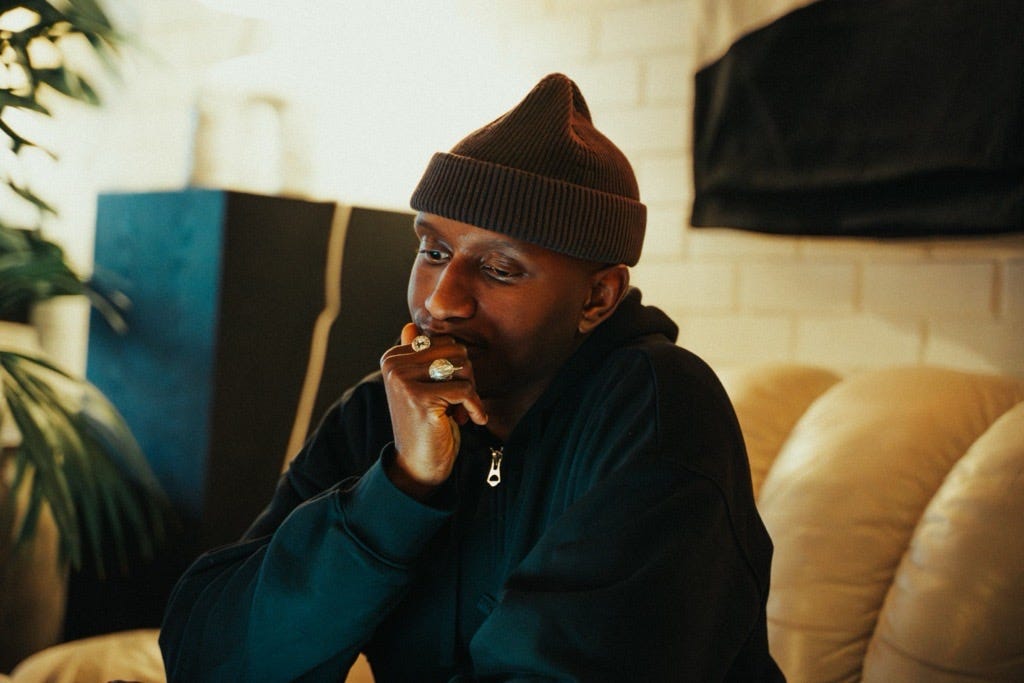BONA, derived from the Zulu greeting to a multitude of people, 'Sanibona' - directly translated as 'we see you' - forms the premise of this publication, by Tebo Mpanza
Something I’ve been thinking about lately—actually, something I think about a lot—is how much is left unsaid. I feel like we live in a time—and certainly I feel like I live in a culture—where not saying anything often seems easier. But is it? More often than not, I think we’re actually hiding—afraid to face what’s hard, not only with others but with ourselves. And sometimes, it’s not even about the other person. It’s about us. What we’re carrying. What we don’t want to admit.
I notice it in the little things—like cards that just say ‘To so-and-so, from so-and-so,’ and nothing else. Or when we send emojis instead of writing actual words. Why does it pain us to say more? It doesn’t cost anything, and yet we hold back. Maybe it’s fear. Maybe it’s habit. Maybe we’ve just gotten lazy. Did our parents use their words? Did theirs?
Part of why I started this Substack is because I want to use my words. I used to speak more regularly in different contexts—these days, not so much. Those moments gave me space to process what I was observing in the culture. Now, this publication will have to do. I want to have the hard conversations—or at least think about them. Maybe I won’t always be brave enough to write them all down here, but I want to try. Writing feels like a natural space for me. I’m not an academic by any stretch, but I’ve always loved words. English was my strongest subject at school. I didn’t know then that creative writing, journalism, or certain natural flares I had—or things I loved—could become career pursuits. It’s a conversation for another day, but words have always mattered to me. And as I think about what’s been left unsaid over the years, I realise it even more now.
Life and death are in the power of the tongue (Proverbs 18:21). Words can heal. They can build bridges, but they can also destroy them. They can make sense of chaos. And yet, so many of our relationships rely on assumption. We don’t say what needs to be said—to our parents, siblings, or spouses. Family dynamics are often the hardest to navigate—I’d be here all day writing about the complexities in my own. Somehow, we save the best parts of ourselves for strangers. We pretend because it’s easier. We don’t talk anymore. Our encouragement isn’t specific enough anymore. “Great job” will do. But what was good about what they did? What was the impact it had on you? What was the impression it left? Is there something you’re going to go and think about, or act on, because of it? Tell them!
Maybe Christmas this year is a nudge—a chance to reach out, to pick up the phone, to write a little more in that card than just ‘To and from.’ If you’ve already written the card, write it again. I don’t know. It doesn’t have to be perfect. It doesn’t have to be profound. But maybe this time, you can say something real.
I’m here to figure this out for myself too. To ask the questions. To share what I’m learning as a friend, son, husband, and father in real time. This isn’t a space for perfect answers—in fact, it might not be a space for answers at all. I have more questions than answers anyway.







Great thought Tebo. For me it's developing this universally but more specifically for the small number of people closest to me (close friends and family). The challenge in part is how to articulate these often uncharted conversations.
are people taught how to talk?